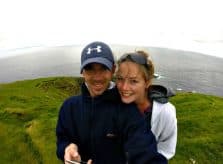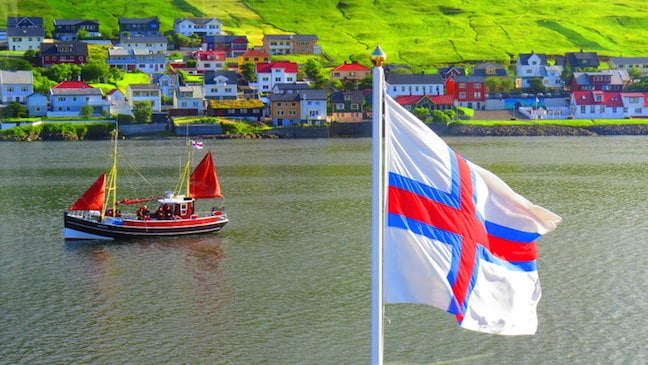
Faroe Islands Whale Hunting
Culture vs. Conservation
(WARNING: A few of the photos in this story may prove too graphic for some readers, as they depict the reality of whale-hunting in the Faroe Islands. We feel it’s important to understand the nature of the Grindadrap, but we offer caution to anyone offended by such pictures.)
For those dedicated to animal advocacy, the annual Faroe Islands whale hunt– a practice known locally as the Grindadrap (a.k.a. the Grind)– has become an international outrage.
Hundreds of pilot whales are slaughtered every year on the shores of these Danish islands, which are located halfway between Norway and Iceland. In recent years the conservation community has been horrified, as the growing media circus circulates gruesome images from the bloody scene.
Though high-profile conservation organizations have rushed to the Faroe Islands to intervene, many volunteers arrive ill-equipped to operate a successful campaign, relying heavily on hype and rarely attempting to understand Faroese culture. But it’s only after we truly understand something that we can attempt to change it.
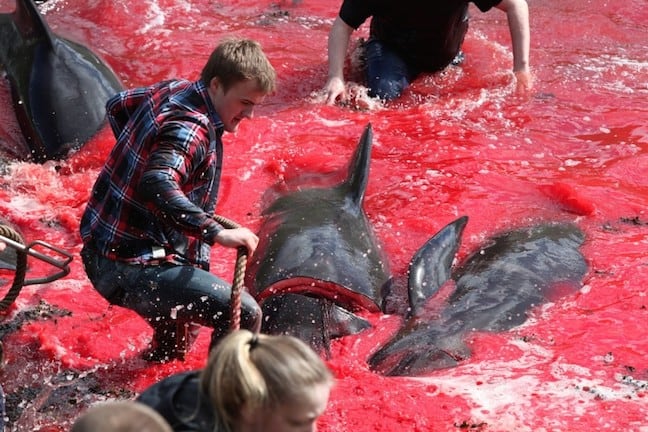
WHAT IS THE GRINDADRAP?
The Grindadrap is an annual opportunistic hunt for Pilot Whales in the Faroe Islands. It’s a non-commercial hunt: All the meat is distributed amongst the community as free food.
The Grind occurs when the whales are sighted close enough to land for boatsmen to drive them into the shores of shallow bays. Faroese animal welfare legislation stipulates that the whales must be killed quickly, with as little suffering as possible.
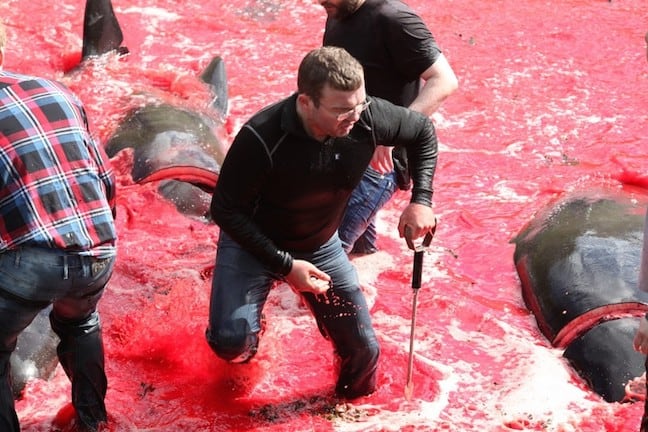
The whales are killed with a spinal lance, which is used to sever the spinal cord and cut off blood supply to the brain, which typically means a loss of consciousness and death within seconds.
The pilot whale is not an endangered species and, with an average of around 1,000 animals killed each year in the Faroe Islands, the practice is currently considered sustainable. But there have been no studies conducted on the consequences of wiping out whole pods of pilot whales, and the ongoing degradation of the global marine environment doesn’t seem to bode well for the future of any cetacean species.
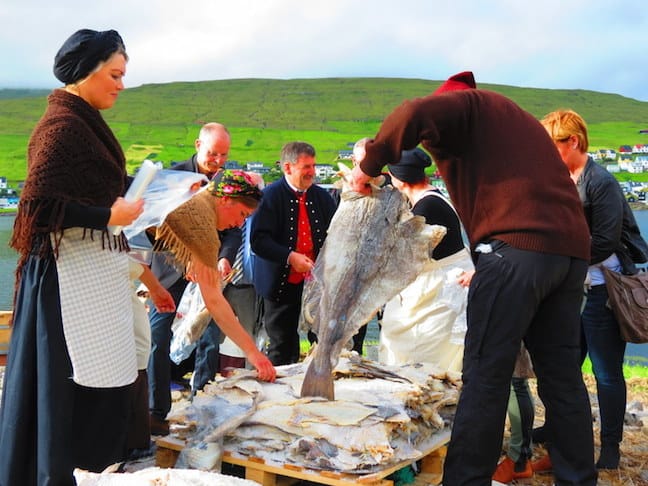
IS THE GRIND STILL NECESSARY?
Historically, the Faroese have relied on whale meat as a crucial part of their survival. Because they were severely isolated in the North Atlantic Sea, famine, failed harvests and trade monopolies made it vital that the Faroese were able to provide their own food.
Perhaps the modern continuation of the Grindadrap tradition is rooted in a desire to remain self-sufficient in the harsh Faroese environment. But nowadays there’s plenty of access to food through agriculture and foreign imports that the islanders wouldn’t need to worry about going hungry if they stopped hunting whales.
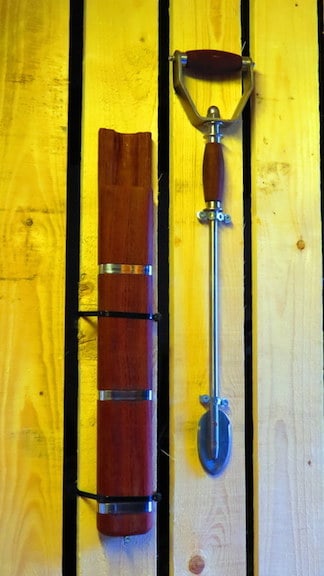
“Nobody would starve if there was no Grind,” said Marna Frida Olsen, a Faroese environmentalist and editor of Grindabod.fo. “But it is a question of attitude as well, because some people like to eat local. They feel like, ‘You want me to stop eating pilot whale meat, but then go to the supermarket to buy imported food instead?!’ I get their point. But I’m pretty sure most people here eat food from supermarkets. The new generation does not like to eat [whale meat], and they’re not as used to it as the older generation.”
Consumption of whale meat is beginning to decline in the Faroe Islands, and many families choose to refuse their share from the Grind. As agriculture thrives and alternate food sources become more readily accessible, the tradition is no longer necessary for survival. Nowadays, it seems to be continued more as an emotional attachment to Faroese cultural heritage.
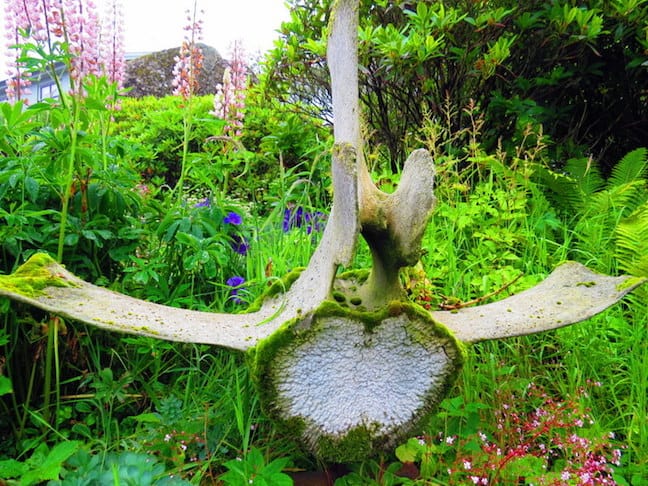
THE PROBLEM WITH WHALE MEAT
Like most cetaceans, Pilot Whales accumulate high levels of heavy metals such as mercury in their bodies. So one reason the consumption of whale meat in the Faroe Islands has declined is due to well-documented concerns about the associated health risks.
In 2008, Faroe Islands Chief Medical Officer Debes Joensen and Pál Weihe of the Department of Public and Occupational Health recommended that pilot whales no longer be considered fit for human consumption due to the presence of DDT derivatives, PCBs and mercury in the meat. This recommendation came after research linking mercury intake with the high rate of Parkinson’s disease among the Faroese.
This recommendation sparked much debate among the locals, but the fact remains undisputed. “This is the main reason people have stopped eating it” says Rúni Nielsen, a food science advisor from the Faroe Islands. “And those who continue eating it don’t believe it.”
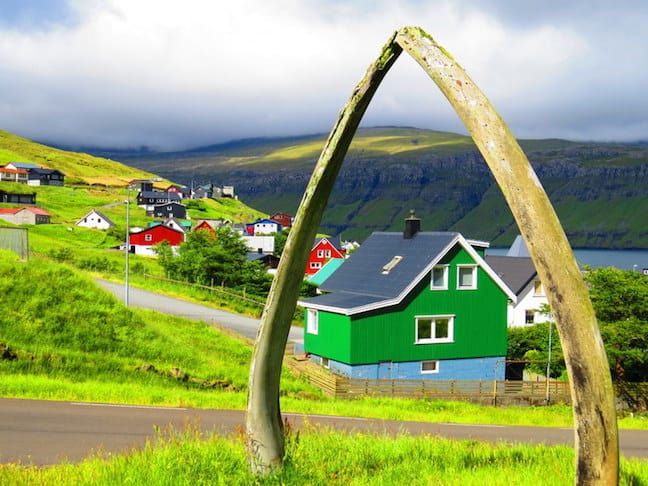
THE PROBLEM WITH ARMCHAIR ACTIVISTS
To be clear, Green Global Travel does not condone the killing of Pilot Whales. We believe that what was once a cultural tradition necessary for survival is now an outdated practice, and an unnecessary loss of life considering the meat is not suitable for human consumption. We strongly believe in advocating for an end to the whale hunts.
The problem is that provocative anti-whaling activist campaigns (such as those mounted by Sea Shepherd) have proven counterproductive, merely strengthening the desire of diehard Faroese nationalists to hold on to their cultural heritage. Activists insist that the Faroese are morally wrong to slaughter cetaceans, whalers take issues with outsiders trying to dictate how they should live or what they should eat, and the result is more polarization on the issue.
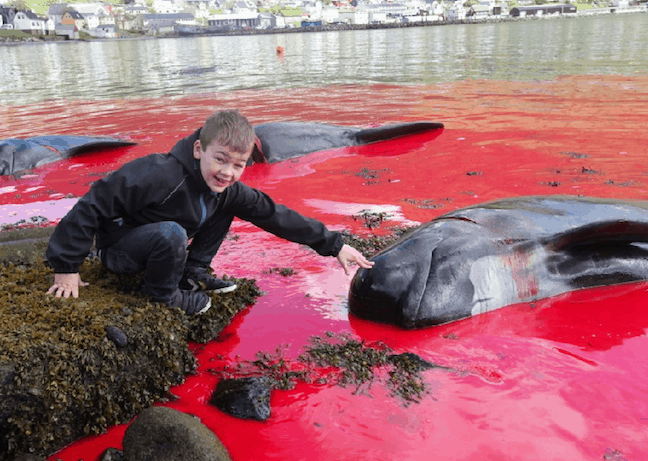
Horrific photos of blood-filled bays and children dancing upon whale carcasses are posted on news sites. The Faroese way of life is sensationalized, myths develop, and ill-informed outlets re-post hyperbolic narratives without checking facts. These stories and pictures go viral, shared by armchair activists who rant and rage about how the Faroese can sleep at night.
Unfortunately, most of these people stop there, never taking any sort of real action. Aggressive and accusatory statements plague social media: “I wish a tsunami would sweep over the islands”; “Blood thirsty murderers, the Faroese are barbarians”; “I hope they all die from eating toxic meat”; “Dirty sons of bitches. This disgusting island should rot in hell.” These sorts of overly emotional responses make finding solutions impossible.
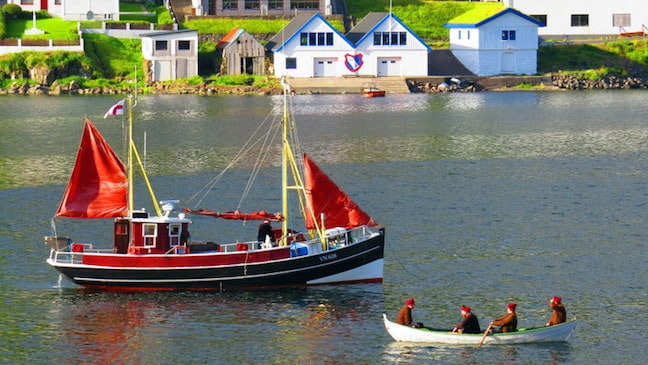
THE PROBLEM WITH SEA SHEPHERD
While Sea Shepherd campaigns in other parts of the world have proven highly successful, their aggressive approach against Japanese whalers operating illegally in the Antarctic doesn’t work in the Faroe Islands, where whaling remains legal (not to mention a historically important tradition).
Their willingness to break the law by interfering in the whale hunts has recently resulted in the discussion of a ban, which would prevent members of the organization from entering the country. It’s a shame, as the majority of Sea Shepherd volunteers who come to the Faroe Islands generally arrive with good intentions. But, in relying on misinformation and media hype, many are ill-equipped to engage in the sort of reasoned diplomatic discourse that could help the whales in a positive, productive way.
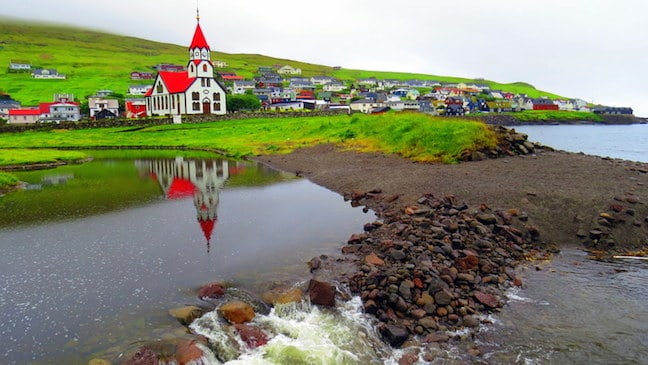
“We are here, and unfortunately there are many Faroese people asking us, ‘Why are you here making war?'” said one member of the SSC land crew. “We’re not making war. I know that Sea Shepherd has an aggressive appeal, but this is a totally different situation to campaigns in Taiji and Antarctica, where whaling is against the law. In those situations, we were defending the law.”
“Think about what we show on TV, especially on Animal Planet [whose Whale Wars made Sea Shepherd famous], and remember that it’s a commercial production. Unfortunately, we see more of an audience if something dramatic happens; a tragedy, or something cruel. This gets more of an audience than saying, ‘Ok, we’re here, but nothing is going on.'”
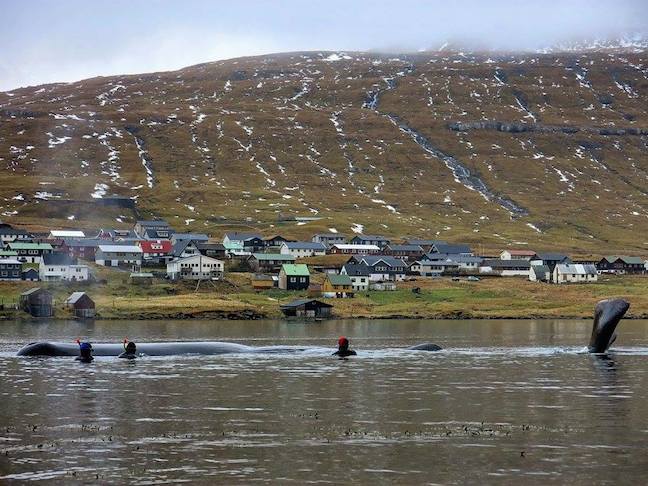
FINDING COMMON GROUND WITH THE FAROESE
Contrary to popular belief, I found the Faroese to be a very friendly people who actually welcome foreigners, and are willing to converse with those who show good intentions. They understand that other people’s opinions may differ, and are willing to discuss any issue openly and respectfully. Should they be presented with appropriately convincing arguments, many of them seem willing to change their ways.
Understandably, the Faroese as a people do not react well to being demonized or shamed by outsiders who have no interest in respectful dialogue. Propaganda and sensational stunts only further harm the cause, because bringing conflict to the islands makes it impossible for the Faroese to believe that you have good intentions.
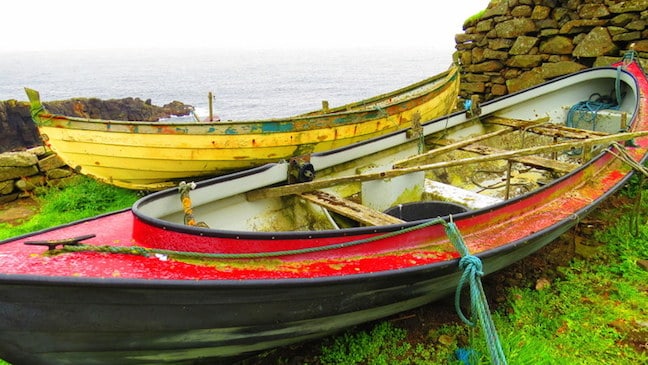
Having become swept up in a war of words and a desire to attack the character of the Faroese as a society, animal rights organizations such as Sea Shepherd have lost sight of their cause and forgotten about the whales they should be fighting to save.
“If you want us to stop killing whales, stop making us your enemies” says a Faroese local islander, quoted in a recent Op-Ed: From the Faroese Perspective. Confrontational approaches do nothing to further this cause, and name-calling has never once saved a single whale. Trade embargoes and tourism boycotts will not help. If you want the Faroe Islands to make friends with the whales, you must first make friends with the Faroese.
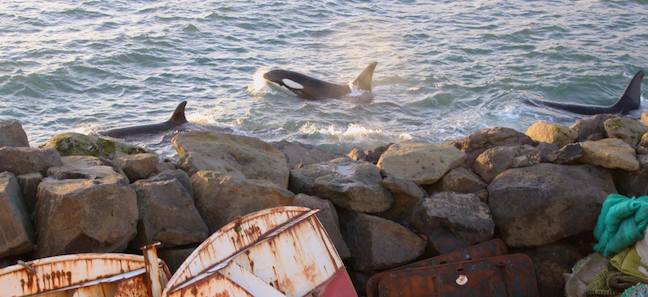
A MORE PRODUCTIVE APPROACH
Organizations such as the New Zealand-based Earthrace Conservation Society recognize the problems inherent in the confrontational approach, and are working towards ending the Grind more peacefully.
“Realizing how much time needs to be spent raising awareness and educating fellow activists about delicate matters about the Grind and Faroe Islands culture can lead even the most hardened astray. Then again, we are tireless Vikings,” says Runi Nielsen, a Faroese representative at Earthrace.
They’re currently using open dialogue with the Faroese people to establish a whale-watching industry there, and are succeeding in convincing islanders to join their cause. Even those who support the Pilot Whale slaughter have high regard for conservationists like Ady Gil (who recently sued Sea Shepherd) and Pete Bethune, acknowledging their passion for whales, even though they don’t agree with their views that the annual slaughter should be stopped.
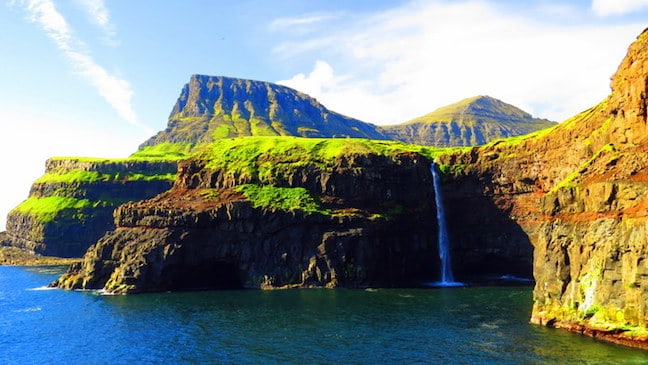
PROMOTING ECOTOURISM ALTERNATIVES
The Faroe Islands rank among some of the most beautiful in the world. With their inspiring scenery, untamed nature and dramatic landscapes that take your breath away, the Faroes are simply unbelievable. There is great potential for ecotourism to transform the Faroese economy, and prove that whales should be celebrated instead of slaughtered.
Fortunately, attitudes among the Faroese are beginning to change. Though Pilot Whales are still hunted, other cetacean species are viewed with fascination rather than being seen as food. This, locals say, is the key to ending the Grindadrap once and for all.
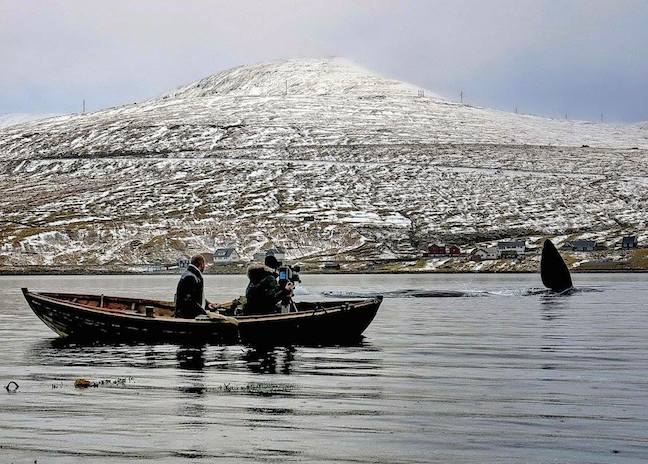
“People here definitely look at these whales as food. In this way, there is no difference between a Sheep, a Cow or a Pilot Whale,” says Marna Olsen. “But there are other whales which people enjoy, swimming with them, taking photos of them or filming them. Orcas, for example, used to be killed here, but are not anymore. People are not thinking of food when they look at a Killer Whale. It fascinates them, and they take pictures.”
So while many people call for a boycott of the Faroe Islands, promoting ecotourism here could actually be key to stopping the Grind. Working with the Faroese to support a whale-watching industry could change attitudes by providing an alternative form of economic relief.
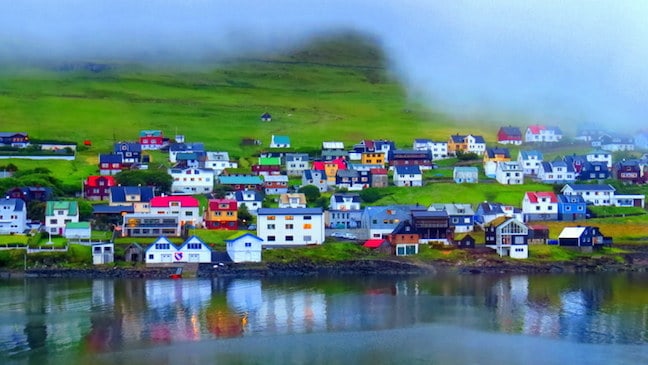
CONCLUSIONS
International pressure will not stop the Grindadrap. The Faroe Islands have prospered while remaining isolated from the outside world for centuries, and will continue to do so if they must. A travel boycott is counterproductive: While tourism is beginning to play a larger role in the Faroese economy, it’s not a make or break element.
The Grind will only stop when the Faroese people want it to, requiring both sides to treat the delicate matter with mutual respect and understanding. The only way we, as animal rights advocates, can make a difference in stopping the annual slaughter is by promoting continued cooperation to change Faroese opinion.
But we have to understand that an entire culture will not change overnight. And you certainly cannot bully an entire society, or attempt to bend them to your will. There are many ways to expedite change, but only with the correct approach. Education is the key. –Megan Jerrard; all Grind photos courtesy of Nordlysid.fo
RESOURCES
• For more information on pilot whales visit
• For more information on whaling in the Faroe Islands visit
• For an update on the efforts of EarthRace Conservation to end the Faroese Grind peacefully visit
• The Faroe Islands cooperate internationally through the North Atlantic Marine Mammal Commissio – for more information visit http://www.nammco.no/
ANTARCTICA: The Whales of Antarctica
ENDANGERED SPECIES SPOTLIGHT: North Atlantic Right Whale Facts
ENDANGERED SPECIES SPOTLIGHT: Blue Whale
INTERVIEW: Jean-Michel Cousteau on the Future of Marine Conservation
INTERVIEW: Blackfish Director Gabriela Cowperthwaite Vs. Sea World
